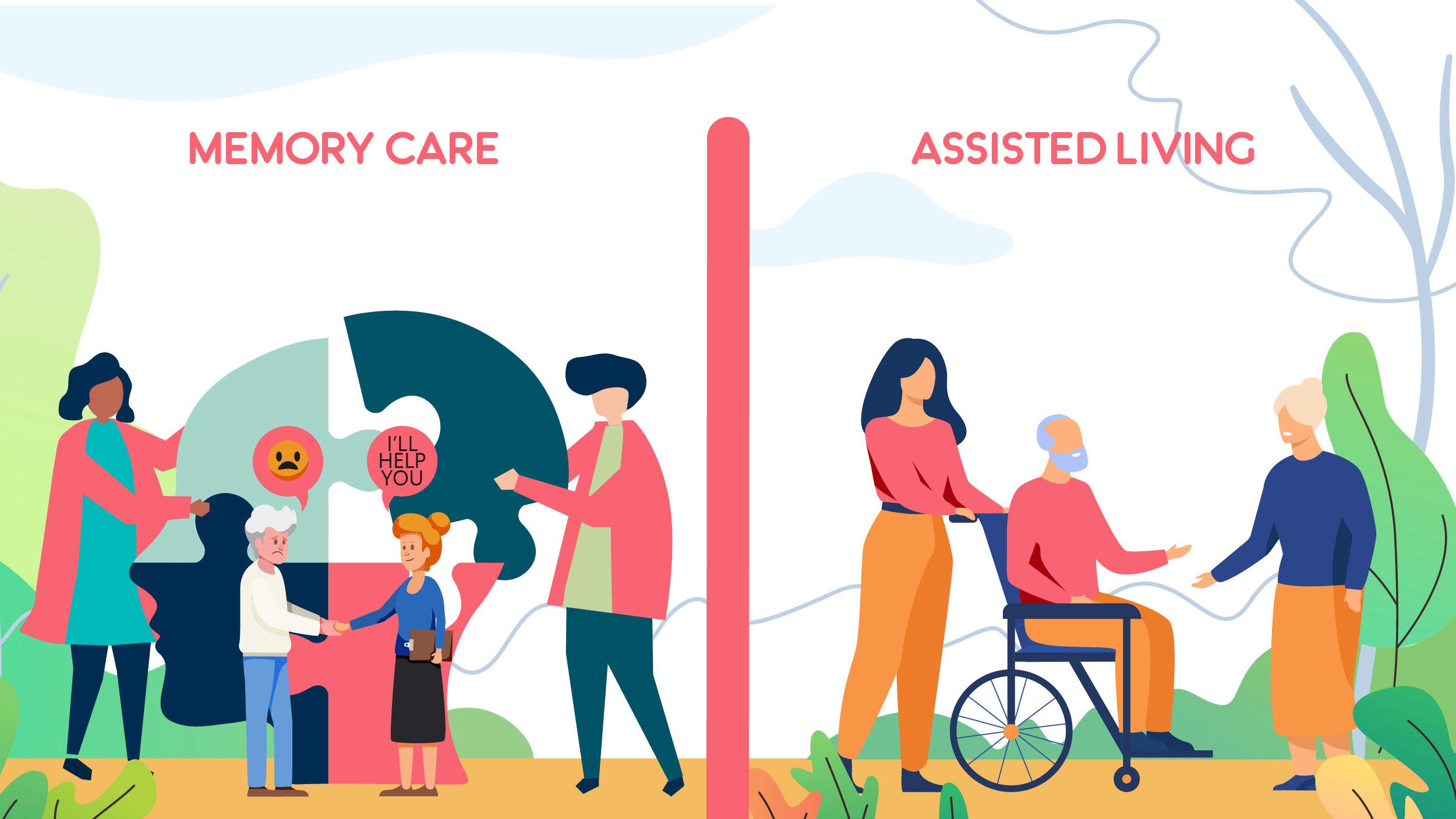Skillfully Managed Programs for Top Quality Alzheimers Care Charlotte Services
Skillfully Managed Programs for Top Quality Alzheimers Care Charlotte Services
Blog Article
Developing a Safe and Helpful Setting for Alzheimer's Treatment
The development of a encouraging and secure atmosphere for people with Alzheimer's is extremely important in improving their lifestyle. This involves not just physical adaptations within the home, such as minimizing hazards and integrating acquainted aspects, however likewise the application of structured routines and significant activities that satisfy their cognitive demands. Recognizing the emotional and emotional dimensions of treatment can dramatically impact their feeling of security and connection. Exploring these diverse techniques can disclose critical understandings into efficient caregiving strategies that may transform the everyday experiences of both people and caretakers.
Understanding Alzheimer's Needs
Frequently, people with Alzheimer's disease show a series of requirements that need tailored approaches to care. As the condition advances, cognitive decline shows up in numerous means, influencing memory, reasoning, and even the capability to do daily activities. Caretakers have to acknowledge these advancing needs to provide proper support and guarantee a better of life for those impacted.
One vital aspect of comprehending Alzheimer's needs is recognizing the significance of regular and familiarity. People often find comfort in established patterns, which can lower anxiety and confusion. Caretakers should strive to develop structured daily schedules that include purposeful activities straightened with the person's abilities and interests.
In addition, efficient communication is critical. Individuals with Alzheimer's may struggle to share themselves or comprehend intricate language. Caretakers need to utilize easy, clear language, use non-verbal signs, and technique active listening to promote understanding and link.
Last but not least, social and emotional requirements can not be overlooked. Giving opportunities for social communication and keeping connections can substantially improve psychological health. Caregivers need to urge engagement in area activities or family celebrations, advertising a sense of belonging and objective. Recognizing these varied needs is crucial for developing an encouraging care setting.
Creating a Safe Home
Creating a safe home for people with Alzheimer's condition is necessary to reducing risks and promoting freedom. The layout of the space need to prioritize safety and security while enabling personal comfort. Remove prospective threats such as loose carpets, sharp objects, and clutter, which can lead to falls or accidents. Ensure that paths are well-lit and clear, as correct lighting reduces disorientation and improves wheelchair.
Including adaptive functions is additionally essential. Mount grab bars in washrooms and near staircases, and consider using non-slip floor coverings in damp locations. Additionally, using contrasting shades for wall surfaces and floorings can help in identifying rooms, assisting to mitigate confusion.
Experience is necessary for people with Alzheimer's. Individualizing the environment with familiar items and pictures can strengthen a feeling of belonging and safety - Alzheimers Care Charlotte. It is also helpful to have a marked area for everyday activities, such as analysis or crafting, which can provide framework to their day
Finally, executing a safe outdoor space enables secure expedition while attaching with nature. By attentively making the home atmosphere, caretakers can significantly enhance the high quality of life for individuals coping with Alzheimer's disease.
Enhancing Interaction Abilities

Non-verbal communication, consisting of facial expressions, gestures, and touch, plays an important role in communicating empathy and understanding. Preserving eye call and a tranquil behavior can boost the comfort level of the person, advertising a feeling of security.
Moreover, it is necessary to practice active listening. This includes being fully present, showing patience, and allowing the person to express themselves without disturbance. Repeating may be essential; caretakers should be prepared to revisit inquiries or topics, as people with Alzheimer's may struggle with memory recall.
Additionally, making use of visual aids or cues, such as photos or acquainted things, can help with recognition and interaction. Inevitably, boosting communication skills is about developing trust fund and producing a setting where people feel heard, valued, and recognized, thereby enriching their lifestyle.
Encouraging Social Communication
Fostering purposeful social interactions can considerably enhance the health of people with Alzheimer's illness. Involving with others not just helps battle sensations of seclusion however also boosts cognitive feature and psychological health and wellness. Structured social activities, such as group arts, video games and crafts, or songs therapy, create possibilities for citizens to get in touch with peers and caregivers, which can result in enhanced state of mind and lowered stress and anxiety.
Creating a welcoming atmosphere that urges socializing is essential. This can be attained by arranging communal rooms that promote communication, such as relaxing seating locations or activity rooms. In addition, integrating familiar and culturally appropriate activities can motivate and stimulate memories participation, enabling people with Alzheimer's to really feel even Our site more linked to their previous experiences.
Furthermore, caretakers must be trained to identify and promote social engagement amongst locals. By focusing on social interaction, we can dramatically improve the lives of those living with Alzheimer's, promoting a feeling of neighborhood and belonging.
Supporting Caretaker Wellness

To support caretakers, companies should provide routine training and instructional sources to boost their understanding of Alzheimer's disease and caregiving techniques. Offering accessibility to reprieve treatment solutions allows caregivers to take required breaks, minimizing anxiety and exhaustion - Alzheimers Care Charlotte. In addition, cultivating a community with support system can assist in psychological sharing and the exchange of functional recommendations amongst caretakers, developing a network of common assistance
Psychological wellness sources, such as therapy services, can likewise be important in attending to the psychological toll caregiving can take. By focusing on caregiver wellness, we create a more sustainable caregiving environment that not only profits the caretakers themselves yet additionally additional reading boosts the total top quality of care gotten by individuals with Alzheimer's. Ultimately, sustaining caretakers is a crucial part in promoting a caring and effective treatment setting.
Conclusion
In verdict, the production of a risk-free and supportive environment for people with Alzheimer's is vital to improving their lifestyle. By prioritizing safety with thoughtful layout, fostering psychological wellness with acquainted aspects, and promoting involvement with structured routines, caretakers can substantially impact the total experience of those impacted by this problem. Supporting caretaker health is vital, as it ultimately adds to an extra compassionate and reliable care atmosphere.
Rep might be required; caretakers should be prepared to review concerns or subjects, as individuals with Alzheimer's may battle with memory recall.

Report this page